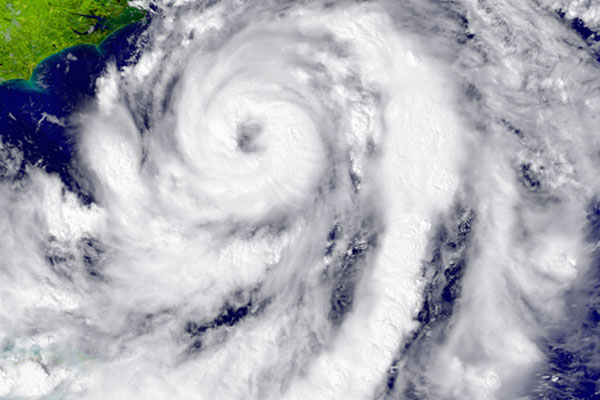The reopening of Caribbean resorts post-Hurricane Beryl highlights both resilience and ongoing climate challenges. The category-five storm left significant damage across several islands.
Efforts to reopen have been swift, with leaders urging global powers to take climate change seriously. This situation reflects broader concerns about the impact of extreme weather on vulnerable regions.
Hurricane Beryl’s Impact on the Caribbean
Caribbean destinations have swiftly reopened following the devastating impact of Hurricane Beryl, the first major hurricane of the 2024 Atlantic season. As the earliest category-five hurricane recorded in the Atlantic, Beryl wreaked havoc on Grenada’s northern islands, namely Carriacou and Petite Martinique, and severely impacted several islands in Saint Vincent and the Grenadines like Union Island and Canouan.
The storm did not spare other regions, hitting Jamaica, the Cayman Islands, the Yucatan Peninsula, and Texas, resulting in 20 confirmed fatalities across those areas. Multiple locations saw substantial infrastructural damage, requiring immediate relief efforts to restore normalcy. The aftermath of Beryl serves as a stark reminder of the vulnerability of these regions to severe weather events.
Call for Climate Justice
In the wake of Hurricane Beryl, leaders from the affected regions are vocally criticising developed nations for their inadequate measures to combat global warming. Grenada’s Prime Minister, Dickon Mitchell, emphasised that the hurricane is a direct consequence of the climate crisis. He expressed frustration over the persistent losses suffered by Caribbean nations due to climate-related disasters while developed countries fail to provide meaningful support.
“We demand and deserve climate justice,” Mitchell stated, highlighting the urgent need for developed nations to take responsibility. He condemned the platitudes and token gestures, advocating for real action to address the root causes of climate change. Ralph Gonsalves, the Prime Minister of Saint Vincent and the Grenadines, echoed these sentiments, urging major emitters to uphold their environmental commitments.
Recovery and Resilience Efforts
As recovery efforts commence, the resilience of the Caribbean people is evident. The tourism sectors of Jamaica, Grenada, and Saint Vincent and the Grenadines, among others, are gradually reopening. Significant strides have been made with airports and cruise ports announcing resumptions of operations. The Jamaica Tourist Board confirmed the region’s preparedness with robust safety measures for both staff and visitors during the storm.
Despite formidable challenges, Saint Vincent and the Grenadines has displayed remarkable resilience. The tourism ministry reported ongoing recovery, noting that some areas have already begun to welcome tourists. They are optimistic about the tourism sector’s revival, despite the setbacks posed by Hurricane Beryl.
While some areas remain under initial recovery phases, others are fully operational. The Grenada Tourism Authority announced the majority of hotels and attractions are running smoothly, eager to host visitors once again. The response from local administrations and international assistance has been pivotal in restoring affected areas.
International Aid and Tourism
International aid has been crucial in the aftermath of Hurricane Beryl. Royal Caribbean quickly responded to the appeal from Saint Vincent and the Grenadines, sending relief supplies aboard the cruise ship Rhapsody of the Seas promptly after the request. Such actions underscore the importance of global support in disaster recovery.
Tourism continues to play a vital role in the economic recovery of affected regions. As regions rebuild, there is a pressing need for tourists to support local economies by choosing these destinations. Encouraging visitors not only aids in financial recovery but also promotes cultural exchange and solidarity with the affected communities.
Reopening of the Travel Industry
The reopening of resorts and travel infrastructure post-Hurricane Beryl signals a strong return for the Caribbean tourism industry. With the implementation of strict safety protocols, destinations such as Jamaica and Grenada are reassuring potential visitors of their commitment to safety and quality. This resilience highlights the industry’s ability to withstand and recover from natural disasters.
Saint Vincent and the Grenadines’ tourism board has expressed optimism about the future. Despite the ongoing recovery in some areas, they remain open for business, offering unique cultural experiences and hospitality. The reopening efforts are seen as a testament to the region’s strength and dedication to sustainable tourism.
The Role of Local Leadership
Local leadership has played a significant role in the recovery efforts. Leaders like Grenada’s Dickon Mitchell and Saint Vincent’s Ralph Gonsalves have been at the forefront, advocating for international responsibility and mobilising resources for recovery. Their efforts highlight the crucial role of strong governance in crisis management.
Through collaborative efforts with international partners, regional governments are paving the way for a sustainable recovery. Such partnerships are essential for rebuilding infrastructure and supporting the communities affected by Hurricane Beryl.
Conclusion
The recovery from Hurricane Beryl is a testament to the resilience and determination of the Caribbean region. It also serves as a reminder of the urgent need for climate action and support from global powers. As tourism rebounds and communities rebuild, the Caribbean remains steadfast in its journey toward recovery.
Recovery from Hurricane Beryl demonstrates Caribbean resilience and underscores the need for global climate action. Tourism’s rebound is crucial for economic recovery.
The situation calls for international collaboration to address climate change impacts, ensuring sustainable futures for vulnerable communities.

